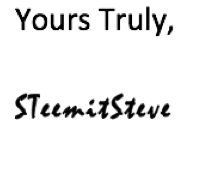GOLD: Doomsday Prepping

WTF?
As I have stated in previous posts, I find the likelihood of a severe market correction to be extremely high (if you disagree don't bother with this post, just go buy an S&P ETF and leme know how you're doing one year from now...or better yet pick up some shares of Sears I hear retail is coming back LOL). Any who I digress, this post is about getting positioned to not only survive but to prosper in the case of a bear market aka do a little "Doomsday Prepping". Yes I know the title is a bit melodramatic but I have nothing to lose, seeing as though I have like 25 followers. My ultra-original answer to a potential bear market: GOLD!!!!!
WHAT I'M BUYING
I am currently holding gold via two equities: Direxion Daily Gold Miners Bull 3x ETF (NUGT) & Sibanye Gold, Ltd. (SBGL). The first equity (NUGT) is a leveraged ETF that suffers from a condition called "time decay", which essentially means that it loses value the longer you hold it. This decay is only represented in the market price, so overall it's NOT a big deal, however I would like to mention that this ETF should be looked at as the more "short-term" portion of your gold position. The second equity (SBGL) is a gold mining company based out of South Africa; it is a normal equity and can be seen as the "long term" element of your bet on gold. Additionally, this stock currently has a beautiful 5.61% dividend yield and a beta of -1.17 (in beginner's terms this means that A) you get paid a bit of $ twice/ year to hold this stock & B) this stock performs very well when the rest of the market is doing shitty, i.e. when "Doomsday" hits).
WHY GOLD
Historically, gold is the best hedge against a bleeding stock market/ economic trough and because I lack creativity. There are types of equities such as consumer staples, that perform just fine in an economic downturn but they won't necessarily allow you to actually gain from such conditions. One can also invest in so called "Inverse ETFs" that aim to profit from bear markets, however, most of these have a poor track record when it comes to actually tracking an index or industry in exact opposite fashion. In more simple terms, they don't really even do what they are suppose to do so I would recommend avoiding them. Lastly, one can always use derivatives to short the market but this requires a more advanced skill-set and frequently updating contracts.
THE END!
